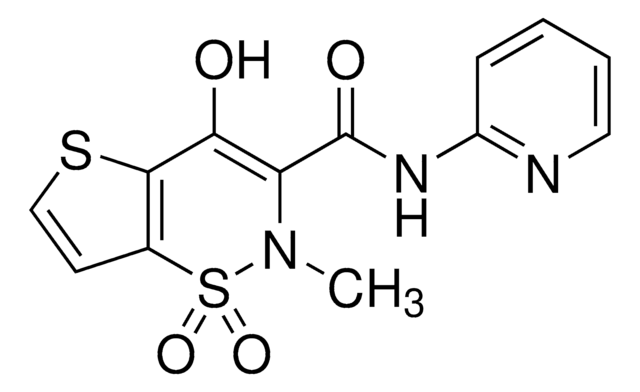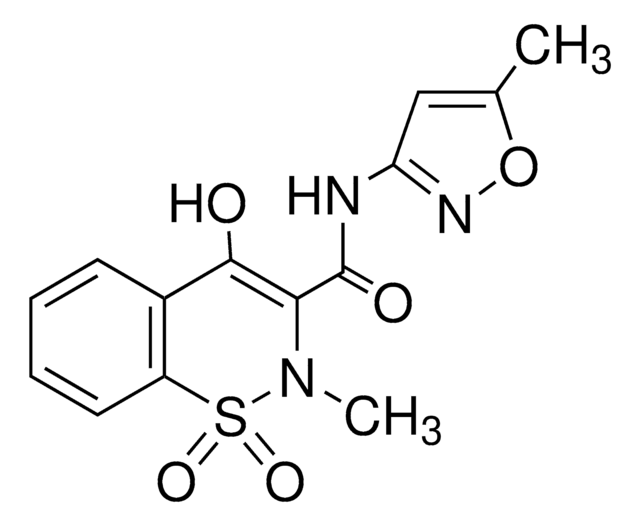T0909
Tenoxicam
NSAID
Synonym(s):
4-Hydroxy-2-methyl-N-2-pyridinyl-2H-thieno(2,3-e)-1,2-thiazine-3-carboxamide 1,1-dioxide
About This Item
Recommended Products
Assay
≥98% (perchloric acid titration)
form
powder
solubility
DMF: 25 mg/mL, clear, yellow-green
SMILES string
O=C(NC1=NC=CC=C1)C2=C(O)C(SC=C3)=C3S(N2C)(=O)=O
InChI
1S/C13H11N3O4S2/c1-16-10(13(18)15-9-4-2-3-6-14-9)11(17)12-8(5-7-21-12)22(16,19)20/h2-7,17H,1H3,(H,14,15,18)
InChI key
LZNWYQJJBLGYLT-UHFFFAOYSA-N
Looking for similar products? Visit Product Comparison Guide
Application
- as a non-steroidal anti-inflammatory agent (NSAID) to study its effects on root gravitropism in Arabidopsis thaliana
- as a standard in microanalysis of NSAIDs by spectrophotometry
- to test its effect on surface potential andmembrane fluidity modification in phosphoglyceride monolayers
Biochem/physiol Actions
Signal Word
Danger
Hazard Statements
Precautionary Statements
Hazard Classifications
Acute Tox. 3 Dermal - Acute Tox. 3 Inhalation - Acute Tox. 3 Oral
Storage Class Code
6.1C - Combustible acute toxic Cat.3 / toxic compounds or compounds which causing chronic effects
WGK
WGK 2
Personal Protective Equipment
Certificates of Analysis (COA)
Search for Certificates of Analysis (COA) by entering the products Lot/Batch Number. Lot and Batch Numbers can be found on a product’s label following the words ‘Lot’ or ‘Batch’.
Already Own This Product?
Find documentation for the products that you have recently purchased in the Document Library.
Our team of scientists has experience in all areas of research including Life Science, Material Science, Chemical Synthesis, Chromatography, Analytical and many others.
Contact Technical Service




